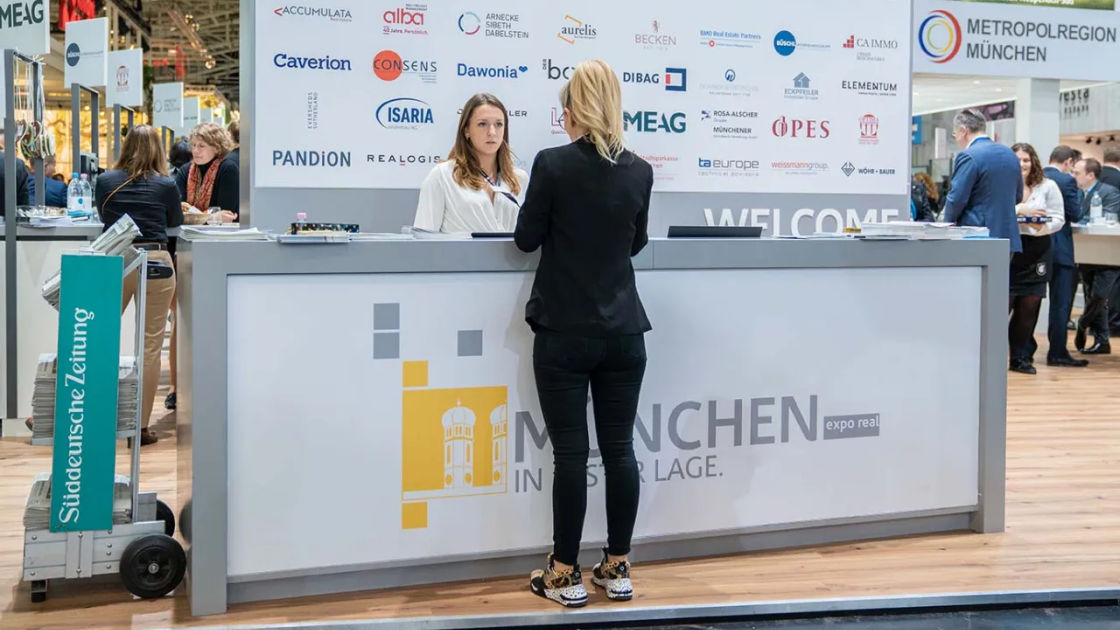With a real estate market growing above the European average, Hungary will present a comprehensive economic vision for the sector and ongoing developments at one of Europe's largest real estate exhibitions, EXPO REAL in Munich, according to a statement from the Hungarian exhibitors. More than 2,000 exhibitors and nearly 40,000 decision-makers from 75 countries are expected to be present at the event held from October 6 to 8.
Ernő Takács, president of the Real Estate Developers' Roundtable Association (IFK), an organization representing the largest real estate developers, explained in a statement sent to MTI that despite global challenges, the domestic real estate market has stabilized. In his opinion, the improving outlook is also reflected in the fact that over the past two years, the volume of foreign direct investment (FDI) in Hungary exceeded the combined FDI value of the Czech Republic, Poland and Slovakia by EUR 23 billion.
Based on data from real estate consultant CBRE, he said that after reaching a volume of EUR 300 million in the first half of the year, the Hungarian real estate investment market is expected to reach a total transaction value of around EUR 800 million by the end of the year, which is more than double the figure for the whole of 2024 (EUR 330 million).
It reported that demand in the industrial real estate market around Budapest has stagnated, but in rural cities –specially in the Debrecen, Miskolc, Kecskemét, Győr and Szeged regions – demand growth is dynamic, with industrial rental volume increasing 2.5 times compared to the same period last year. The industrial volume currently under development nationwide exceeds 580,000 square meters, which continues to indicate brisk activity compared to the existing stock of 5.8 million square meters.
The distribution of invested capital in the first half of 2025 was 50-50% between Hungarian and foreign players. New sources of capital have emerged: in parallel with Chinese working capital investments, Chinese real estate investors have also become active, while the presence of Czech investors in the region is steadily growing.
István Joó, government commissioner and CEO of the Hungarian Investment Promotion Agency (HIPA), emphasized in the announcement that activities generating high intellectual added value are playing an increasingly important role in the Hungarian economy, and this shift in dimension is also reflected in the area of investment promotion.
Albrecht Armand, CEO of the Hungarian state-owned NIPÜF National Industrial Park Operator and Developer Ltd. (INPARK), explained that they are present in 15 counties and 20 municipalities, offering solutions tailored to investor needs on more than 900 hectares.
Rudolf Nemes, CEO of logistics company HelloParks, emphasized that by the end of 2025, the company will have handed over 500,000 square meters of modern industrial space, making it the developer with the most warehouses in the Budapest region, and from January 1, their entire warehouse portfolio will be powered by 100 percent green energy.
Ádám Székely, CEO of Innovinia, reported that their developments are focused on strategic cities in rural Hungary – Debrecen, Kecskemét, Miskolc, Nyíregyháza, Pécs, and Szeged – as these regions represent the hubs of the future production and logistics map.


Leave a Reply Cancel reply
Top 5 Articles
 Shaping a Generation of Creative and Resilient… September 10, 2025
Shaping a Generation of Creative and Resilient… September 10, 2025  New Page in the History of Budapest Airport October 8, 2025
New Page in the History of Budapest Airport October 8, 2025  Duna House Profit Climbs Nearly 70% in Q3 November 24, 2025
Duna House Profit Climbs Nearly 70% in Q3 November 24, 2025  For the Export Success of Hungarian Enterprises June 17, 2025
For the Export Success of Hungarian Enterprises June 17, 2025  Representing France in Familiar Territory October 6, 2025
Representing France in Familiar Territory October 6, 2025






No comment yet. Be the first!